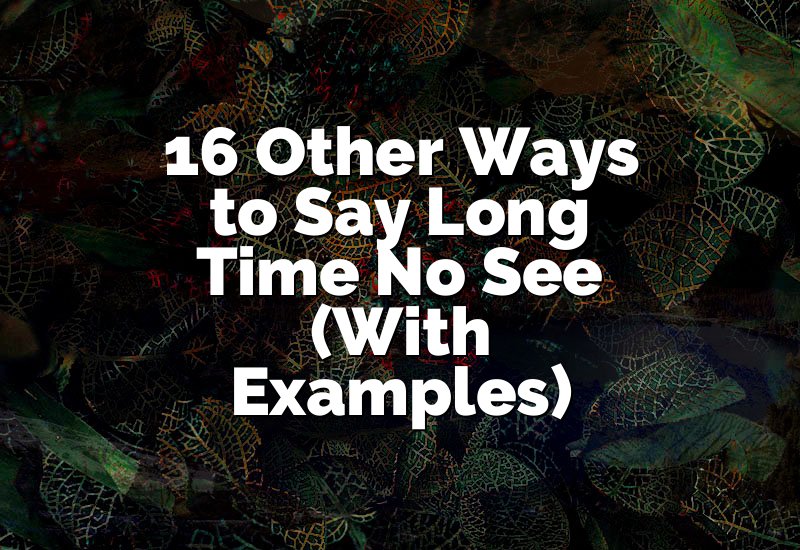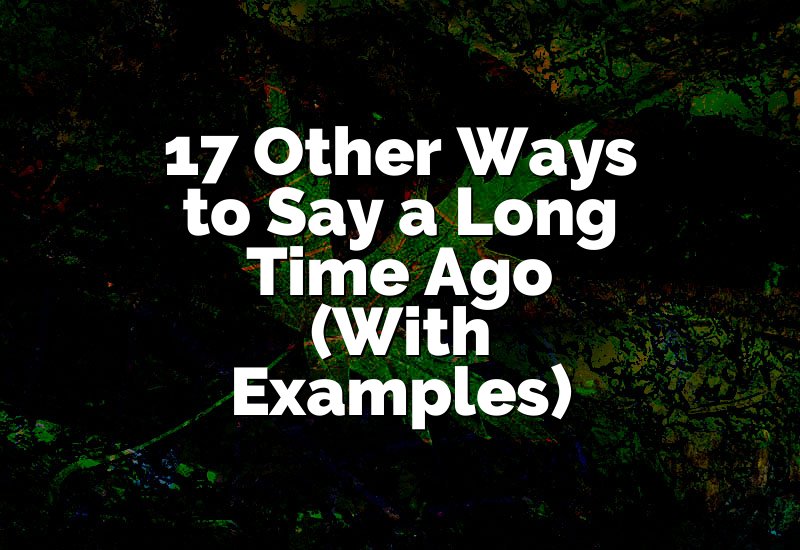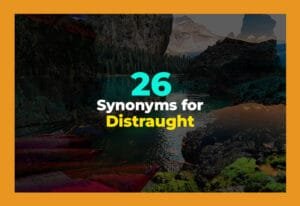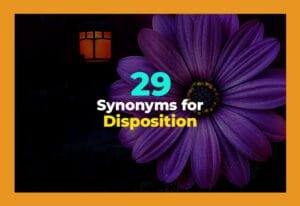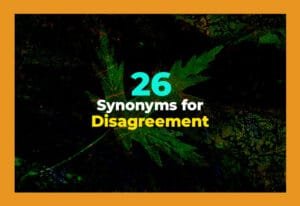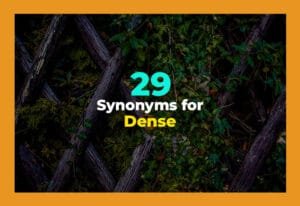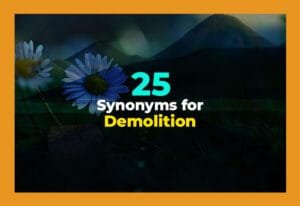Scary moments can make us feel nervous, tense, or even frightened. Many words can describe this feeling in different ways, like frightening, terrifying, or alarming. In this article, we will explore 31 synonyms for scary with examples to help you understand and use them better in your writing or speaking.
| Synonym | Meaning | Example |
|---|---|---|
| Frightening | Causing fear or alarm | The dark forest was frightening at night. |
| Terrifying | Extremely scary, causing strong fear | The movie had a terrifying scene with ghosts. |
| Alarming | Causing worry or fear | The sudden noise was alarming to everyone. |
| Spooky | Strange in a scary way | The old house looked spooky in the fog. |
| Hair-raising | Very frightening or shocking | The haunted tour was full of hair-raising moments. |
| Chilling | Causing fear or a cold feeling | The ghost story was chilling. |
| Fearful | Feeling afraid or worried | The child was fearful of the storm outside. |
| Horrifying | Very shocking and frightening | The accident scene was horrifying. |
| Creepy | Causing an uncomfortable fear | The abandoned building felt creepy at night. |
| Menacing | Showing the intention to harm | The dog gave a menacing growl. |
| Dreadful | Causing great fear or suffering | The news of the storm was dreadful. |
| Appalling | Shocking and very bad | The crime scene was appalling. |
| Grisly | Very shocking and related to death | The murder scene was grisly. |
| Frightful | Causing fear | The thunder was frightful for the little kids. |
| Spine-chilling | Extremely frightening | The horror story was spine-chilling. |
| Bloodcurdling | Very scary and shocking | The scream was bloodcurdling. |
| Unnerving | Making someone feel anxious or scared | The silence in the cave was unnerving. |
| Petrifying | Making someone extremely afraid | The idea of walking alone at night was petrifying. |
| Terrible | Very bad and frightening | The earthquake caused terrible fear in the city. |
| Shocking | Causing surprise and fear | The sudden news was shocking. |
| Disturbing | Making someone feel worried or upset | The violent scene in the movie was disturbing. |
| Intimidating | Making someone feel afraid or nervous | The tall stranger seemed intimidating. |
| Scary-looking | Appearing frightening | The mask was scary-looking. |
| Hair-raising | Causing extreme fear or surprise | The haunted house tour was hair-raising. |
| Dismaying | Causing concern or fear | The storm clouds were dismaying. |
| Fright-striking | Causing sudden fear | The loud scream was fright-striking. |
| Alarm-inducing | Causing fear or worry | The strange noise was alarm-inducing. |
| Fear-inducing | Causing fear | The horror film was fear-inducing. |
| Terrifyingly | Very frightening | The haunted attic was terrifyingly dark. |
| Ghastly | Shockingly frightful or horrible | The abandoned room had a ghastly smell. |
| Macabre | Related to death in a frightening way | The story had a macabre ending. |
Frightening
Frightening means causing fear or alarm. You can use this word when something makes you feel nervous or scared. Frightening is a common word to describe scary experiences. It can be used for movies, situations, or events. People often feel frightened when they face something unknown or dangerous. Using this word helps others understand that something is not just a little scary but truly makes someone afraid.
- The loud thunderstorm was frightening for the little boy.
- Walking alone in the dark alley was frightening.
- The horror movie had a frightening monster scene.
Terrifying
Terrifying is stronger than frightening and means extremely scary. When something is terrifying, it can make your heart race and make you feel panic. You can use terrifying to describe accidents, events, or stories that are shocking and frightening. It shows a high level of fear. Terrifying things are not easy to face and often leave a lasting fear. People usually remember terrifying moments because they are very intense.
- The roller coaster ride was terrifying.
- Seeing the car crash was terrifying.
- The haunted house had a terrifying maze.
Alarming
Alarming means causing worry or fear. It is used when something surprises you in a way that makes you feel unsafe. Alarming situations can be sudden noises, unexpected events, or dangerous actions. It alerts people to be careful. Using alarming in your writing or talking helps others know that there is a need for attention and caution. It can describe both small and serious scary things.
- The fire alarm was alarming for everyone in the building.
- The sudden news of the storm was alarming.
- The barking dog was alarming to the children.
Spooky
Spooky means strange and scary. It is often used for places or events that feel mysterious and frightening. Spooky things can make your skin crawl or make you feel uneasy. People often use spooky for Halloween, old houses, or dark forests. It is a fun word to describe fear that is not too serious but still makes you shiver.
- The forest looked spooky at night.
- The old mansion seemed spooky in the fog.
- The Halloween decorations were spooky but fun.
Hair-raising
Hair-raising means very frightening or shocking. It is used to describe events or moments that make your hair stand on end. Hair-raising experiences are often sudden and very intense. You can use this word for scary stories, adventures, or movies. People feel a strong reaction when something is hair-raising because it excites fear in a physical way.
- The haunted house tour was hair-raising.
- The horror movie had a hair-raising scene.
- The ghost story was hair-raising at the campfire.
Chilling
Chilling means causing fear or a cold feeling. It can describe events, stories, or experiences that make you feel nervous or scared. Chilling things often stay in your mind because they are very strong. You can use this word for both real-life situations and fictional stories. Chilling experiences make you think twice about what might happen next.
- The ghost story was chilling.
- The abandoned house gave a chilling feeling.
- The night in the dark forest was chilling.
Fearful
Fearful means feeling afraid or worried. It is often used for people who are scared of something. Fearful can describe emotions, reactions, or situations. Being fearful does not always mean danger, but it shows that someone is very nervous. You can use this word to show that fear affects someone's thoughts and actions.
- The child was fearful of the thunder.
- She felt fearful before the big test.
- The dog looked fearful of strangers.
Horrifying
Horrifying means very shocking and frightening. It is used for things that are extreme and make people feel fear or disgust. Horrifying situations often involve accidents, crimes, or disasters. Using horrifying helps others understand the seriousness of the fear. It is a strong word that shows a very high level of fear.
- The accident scene was horrifying.
- The movie had a horrifying scene with zombies.
- The news of the flood was horrifying.
Creepy
Creepy means causing an uncomfortable fear. It is often used for things that feel strange, suspicious, or unnatural. Creepy places or people make you feel nervous. It is less intense than terrifying but still uncomfortable. You can use creepy to describe abandoned places, unusual events, or eerie stories.
- The abandoned building felt creepy.
- The old doll was creepy.
- The cat's eyes in the dark were creepy.
Menacing
Menacing means showing the intention to harm. It is used for things or people that look dangerous. Menacing situations make people feel scared and alert. You can use this word for animals, people, or events that seem threatening. Menacing is useful when you want to describe fear caused by danger or the feeling that something bad might happen.
- The dog gave a menacing growl.
- The stranger's look was menacing.
- The storm clouds were menacing over the city.
Dreadful
Dreadful means causing great fear or suffering. It is often used to describe news, events, or situations that are very bad or frightening. Dreadful things make people feel anxious and worried. Using dreadful in writing shows that something is serious and scary. It helps readers understand the negative effect of the situation.
- The news of the earthquake was dreadful.
- The stormy night was dreadful for travelers.
- The accident was dreadful for the victims.
Appalling
Appalling means shocking and very bad. It is used for events, actions, or situations that make people feel fear or strong dislike. Appalling things often cause worry and surprise. You can use this word for news, crimes, or accidents. Appalling situations create fear because they show something very wrong or dangerous.
- The crime scene was appalling.
- The polluted river was appalling.
- The poor living conditions were appalling.
Grisly
Grisly means very shocking and related to death or injury. It is used for events that are hard to look at or imagine. Grisly things make people feel fear and disgust at the same time. You can use grisly to describe accidents, crimes, or horror stories. This word is strong and shows a serious type of scary.
- The murder scene was grisly.
- The horror story had a grisly ending.
- The news of the accident was grisly.
Frightful
Frightful means causing fear. It is used for things that make people scared or anxious. Frightful situations can be small or big, but they all make someone nervous. You can use frightful to describe weather, animals, or events. This word is useful for showing that fear is present in a clear way.
- The thunder was frightful for the children.
- The spider was frightful to see.
- The night walk felt frightful in the dark.
Spine-chilling
Spine-chilling means extremely frightening. It is used for stories, events, or experiences that make your body shiver with fear. Spine-chilling situations are memorable because they leave a strong impact. You can use this word for ghost stories, horror movies, or real scary experiences.
- The horror story was spine-chilling.
- The haunted forest had a spine-chilling atmosphere.
- The scream in the night was spine-chilling.
Bloodcurdling
Bloodcurdling means very scary and shocking. It is used for sounds, sights, or events that make people extremely afraid. Bloodcurdling things create panic or strong fear instantly. You can use this word to describe screams, cries, or terrifying moments.
- The scream was bloodcurdling.
- The horror movie had a bloodcurdling scene.
- The sudden noise was bloodcurdling.
Unnerving
Unnerving means making someone feel anxious or scared. It is used when something makes you uncomfortable or worried. Unnerving situations affect your mind and body. You can use this word to describe moments, events, or people that create fear indirectly.
- The silence in the cave was unnerving.
- The strange man in the dark was unnerving.
- The empty street at night felt unnerving.
Petrifying
Petrifying means making someone extremely afraid. It is stronger than scary or frightening. Petrifying situations can stop people from acting because of fear. You can use this word for real dangers, events, or extreme situations. It shows that fear is very strong.
- Walking alone at night was petrifying.
- The idea of a bear in the forest was petrifying.
- The haunted house was petrifying for the children.
Terrible
Terrible means very bad and frightening. It is used for situations that cause fear or discomfort. Terrible things often make people worry or panic. You can use this word for accidents, events, or experiences that are unpleasant and scary.
- The earthquake caused terrible fear.
- The storm was terrible for the town.
- The accident left a terrible impression.
Shocking
Shocking means causing surprise and fear. It is used when something unexpected scares people. Shocking situations often make people react quickly or feel anxious. You can use this word for news, events, or accidents that are frightening and surprising at the same time.
- The sudden news was shocking.
- The car crash was shocking to witness.
- The loud noise was shocking in the quiet room.
Disturbing
Disturbing means making someone feel worried or upset. It is used for images, events, or actions that are scary or unpleasant. Disturbing things often stay in your mind because they create fear or concern. You can use disturbing for stories, movies, or real situations that make people anxious.
- The violent scene in the movie was disturbing.
- The crime report was disturbing.
- The abandoned building was disturbing at night.
Intimidating
Intimidating means making someone feel afraid or nervous. It is used when people or situations create fear because of power or size. Intimidating things can make people hesitate or feel small. You can use this word for people, animals, or events that scare or stress others.
- The tall stranger seemed intimidating.
- The teacher's strict rules were intimidating.
- The big dog was intimidating to the children.
Scary-looking
Scary-looking means appearing frightening. It is used when something looks scary but may not be dangerous. Scary-looking things create fear from appearance alone. You can use this word for masks, animals, or objects that seem frightening at first sight.
- The mask was scary-looking.
- The statue in the dark was scary-looking.
- The old doll looked scary-looking.
Dismaying
Dismaying means causing concern or fear. It is used when something makes you feel worried or unhappy. Dismaying events or news create fear about what may happen next. You can use this word to show that fear comes from concern and surprise.
- The storm clouds were dismaying.
- The news about the flood was dismaying.
- The empty street at night was dismaying.
Fright-striking
Fright-striking means causing sudden fear. It is used for moments that shock or surprise people. Fright-striking events are quick but very intense. You can use this word for sudden noises, movements, or actions that scare people immediately.
- The loud scream was fright-striking.
- The sudden shadow was fright-striking.
- The unexpected shout was fright-striking.
Alarm-inducing
Alarm-inducing means causing fear or worry. It is used for things that alert people to danger or make them anxious. Alarm-inducing situations can be sudden or continuous. You can use this word to describe sounds, events, or situations that warn people about fear.
- The strange noise was alarm-inducing.
- The fire alarm was alarm-inducing.
- The approaching storm was alarm-inducing.
Fear-inducing
Fear-inducing means causing fear. It is used for events, people, or things that make people feel scared. Fear-inducing situations often make people cautious or nervous. You can use this word for stories, movies, or real events that create strong fear.
- The horror film was fear-inducing.
- The dark alley was fear-inducing.
- The loud thunder was fear-inducing.
Terrifyingly
Terrifyingly means very frightening. It is used to describe situations or experiences that create extreme fear. Terrifyingly moments make people feel unsafe and anxious. You can use this word for events, movies, or places that have a strong effect on fear.
- The haunted attic was terrifyingly dark.
- The thunderstorm was terrifyingly loud.
- The horror story was terrifyingly scary.
Ghastly
Ghastly means shockingly frightful or horrible. It is used for things that create fear or disgust. Ghastly situations often involve danger, accidents, or frightening appearances. You can use this word for stories, images, or events that are extremely scary.
- The abandoned room had a ghastly smell.
- The ghastly sight made everyone panic.
- The news of the accident was ghastly.
Macabre
Macabre means related to death in a frightening way. It is used for stories, images, or events that are scary because they involve death. Macabre things often make people shiver or feel horror. You can use this word for books, movies, or experiences that show death in a shocking way.
- The story had a macabre ending.
- The haunted house had a macabre decoration.
- The old graveyard looked macabre at night.
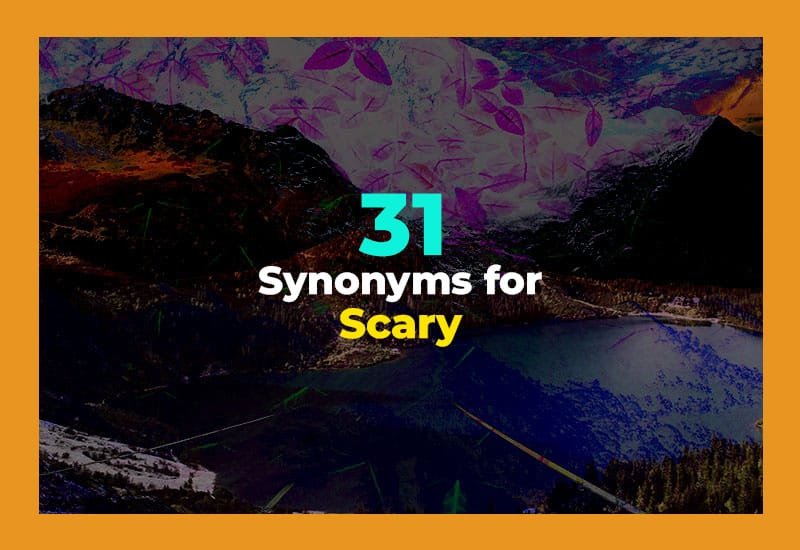
Final Thoughts
There are many ways to describe scary experiences. From frightening and terrifying to macabre and ghastly, each word has its own feeling. Using these synonyms helps you explain fear better and share intense emotions with others clearly and effectively.

